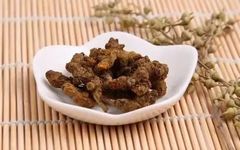Traditional Chinese Medicine (TCM) considers Huang Lian (Coptis chinensis) to have a bitter taste, a cold nature, and to enter the Heart, Spleen, Stomach, Liver, Gallbladder, and Large Intestine meridians. It is commonly used to treat conditions such as damp-heat obstruction, vomiting with sour regurgitation, diarrhea with jaundice, high fever with delirium, excessive Heart fire, irritability and insomnia, blood heat with vomiting or nosebleeds, red eyes and toothache, and carbuncles and sores. Externally, it is also effective for treating eczema, oral ulcers, and otitis media.
Huang Lian can relieve pain and has a calming effect on irritability, making it a very popular traditional Chinese herb.
Efficacy and Functions
1. Clears Heat and Drains Fire
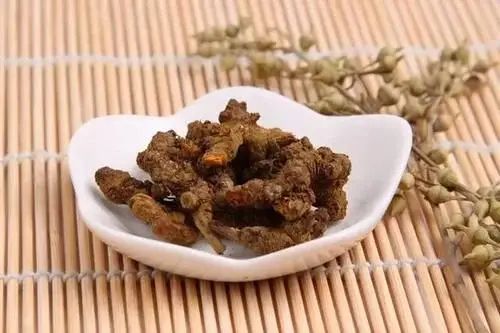
In large image mode
Huang Lian is a very bitter and cold medicinal herb, highly effective for clearing heat and detoxifying, especially for conditions caused by excess heat such as toothache, bitter mouth, and halitosis, along with symptoms like flushed face, dry and hard stools, and a yellow tongue coating, which can often be resolved with Huang Lian.
2. Antibacterial and Anti-inflammatory
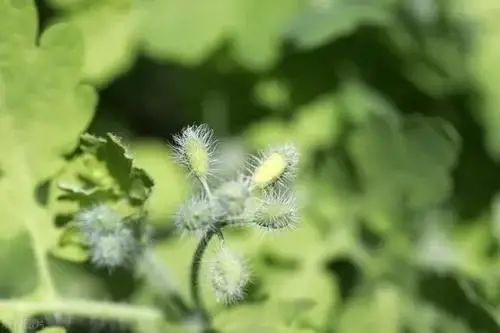
In large image mode
Huang Lian contains a significant amount of berberine, a substance that can inhibit common bacteria such as Gram-positive and Gram-negative bacteria. Therefore, Huang Lian is considered a broad-spectrum antibacterial herb, making it effective for treating diseases like dysentery caused by bacterial infections.
3. Protects the Liver and Benefits the Gallbladder
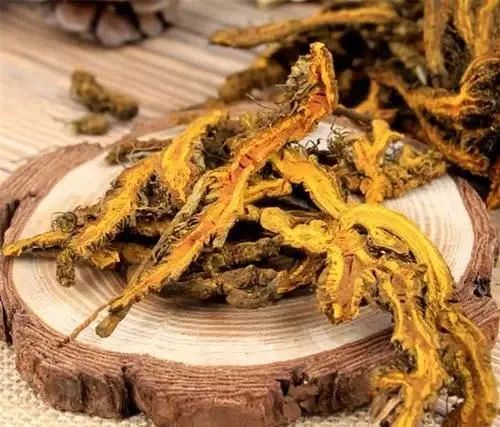
In large image mode
Huang Lian can also promote liver health and benefit the gallbladder. It can help hepatitis patients lower transaminase activity and has therapeutic effects.
Precautions for Use
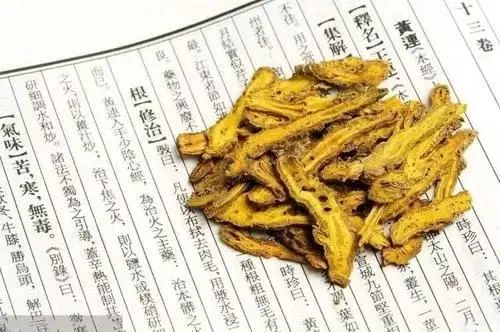
In large image mode
Huang Lian is very bitter and cold; excessive or prolonged use can harm the Spleen and Stomach, leading to diarrhea and affecting digestive function, which may result in loss of appetite and indigestion. It should be used cautiously unless there is excess heat in the body.
Huang Lian has heat-clearing and detoxifying properties and can inhibit E. coli and other bacteria. It can be consumed as a decoction, but it is not suitable for individuals with Spleen and Stomach deficiency and cold, as its bitterness and dryness can injure fluids. Those with Yin deficiency and fluid damage should also use it cautiously, as it is a bitter and cold herb.
Generally, it is not advisable to take it for prolonged periods; it is best taken after meals. The dosage for mild conditions is 2-3 grams daily, while for severe conditions, it is 5-6 grams daily. Children with underdeveloped Spleen and Stomach functions should not take Huang Lian indiscriminately.
Huang Lian Medicinal Recipes
Huang Lian, Ejiao, and Egg Yolk Soup
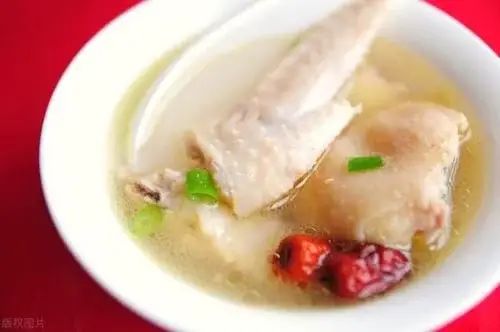
Ingredients: Prepare two egg yolks, 12 grams of Huang Lian, 3 grams of Huang Qin (Scutellaria baicalensis), 9 grams of Ejiao (Donkey-hide Gelatin), and 3 grams of Bai Shao (White Peony).
Method: First, boil Huang Lian, Huang Qin, and Bai Shao with 8 cups of water, reduce to 3 cups, strain, then add Ejiao to dissolve, and finally mix in the egg yolks.
Efficacy: Consuming Huang Lian, Ejiao, and Egg Yolk Soup can clear heat and nourish Yin. It is suitable for conditions where heat evil enters the Ying level, injuring the Ying and Yin fluids, persistent fever, irritability preventing sleep, red and dry tongue, and thin rapid pulse.
Huang Lian and Mu Xiang Stewed Pig Intestines
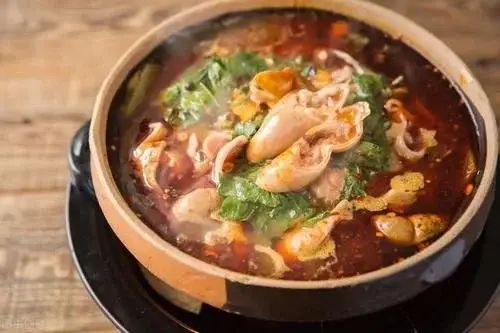
In large image mode
Ingredients: Prepare 5 grams of Huang Lian, 10 grams of Mu Xiang (Aucklandia), 50 grams of pig intestines, 3 slices of ginger, and an appropriate amount of garlic and cornstarch.
Method: Grind Huang Lian and Mu Xiang into a powder; clean the pig intestines. Stuff the powdered herbs into the pig intestines, tie both ends with a toothpick or thread, place in a steamer, and add 250 ml of cold boiled water, then stew for 2.5 hours.
Efficacy: This dish is very suitable for those with Qi stagnation, abdominal distension, and pain, and can also assist in treating colorectal cancer.
Note: Some text and image resources in this article are sourced from the internet. The purpose of reprinting this article is to convey more information. If there are any errors in source attribution or infringement of your legal rights, please notify us immediately, and we will delete it promptly and apologize to you.
More Exciting Recommendations
The Efficacy and Functions of Chrysanthemum and Cassia Seed Tea, Precautions for Eating Grapefruit
The Benefits of Washing Hair with Mugwort Decoction

